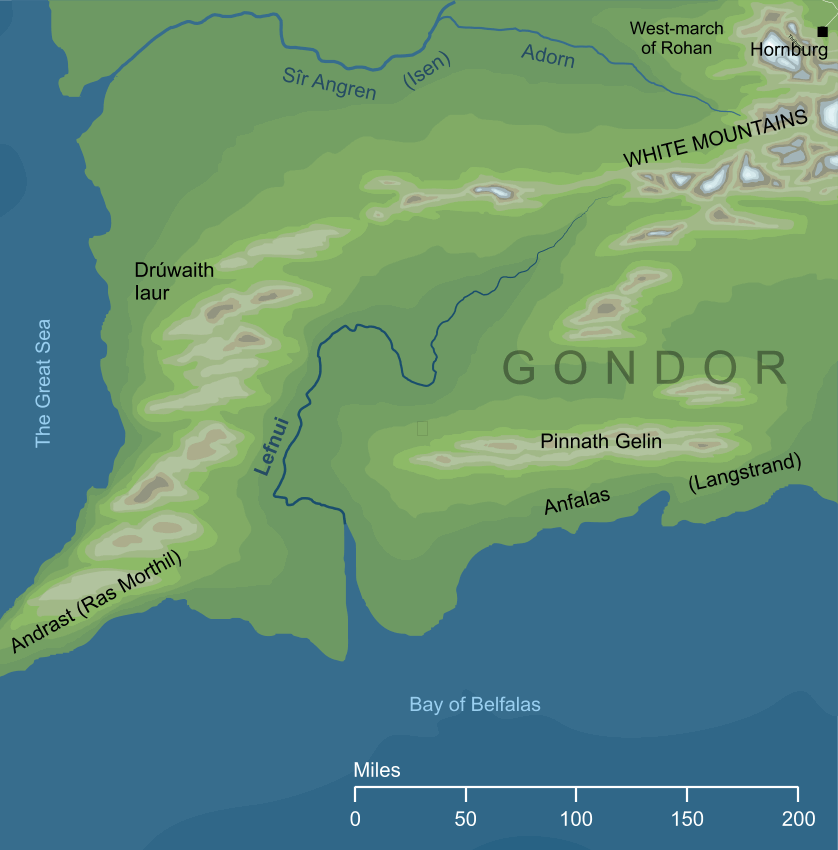- Cities and buildings
- Fields, plains and deserts
- Forests
- Hills and mountains
- Islands and promontories
- Lands, realms and regions
- Rivers and lakes
- Seas and oceans


 |
||||||
|


Which personality type are you?
Take the Free mydiscprofile Personality Test to discover your core personality and your ideal job.   Which personality type are you? |
|
Location
Race
Division
Culture
Source
The western foothills of the White Mountains
Tributaries
None
Outflow
Into the Bay of Belfalas near its northwestern extent
Pronunciation
Probably 'le'fnui' ('ui' as in English 'ruin')1
Meaning
'Fifth'2
Indexes: About this entry:
|
River LefnuiA winding river of Western Gondor
Rivers of Gondor The westernmost of the many rivers of southern Gondor, the Lefnui rose in the far west of the White Mountains. It followed an erratic course through the lands west of the hills of Pinnath Gelin, until it emptied into the Bay of Belfalas through a long and narrow firth. It played little part in history, though it was remembered by the Men of Rohan. When the Dunlendings invaded Rohan in III 2758, they were aided by Gondor's enemies from the south. These sea-going marauders landed at Lefnui's mouth on their mission to overrun and destroy the Rohirrim, though they would eventually be defeated. Notes
See also...Anfalas, Drúwaith Iaur, Green Hills, Langstrand, Long Cape, Men of the Anfalas, Old Púkel-wilderness, Pinnath Gelin, Western Gondor, White Mountains Indexes: About this entry:
For acknowledgements and references, see the Disclaimer & Bibliography page. Original content © copyright Mark Fisher 2003, 2017. All rights reserved. For conditions of reuse, see the Site FAQ. Website services kindly sponsored by myDISCprofile, the free online personality test.How do your personal strengths fit in with career matching? How can you identify them? Try a free personality test from myDISCprofile. |